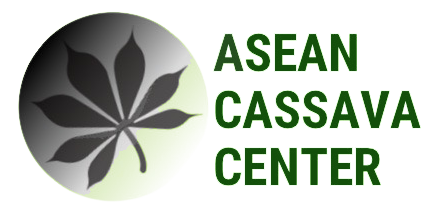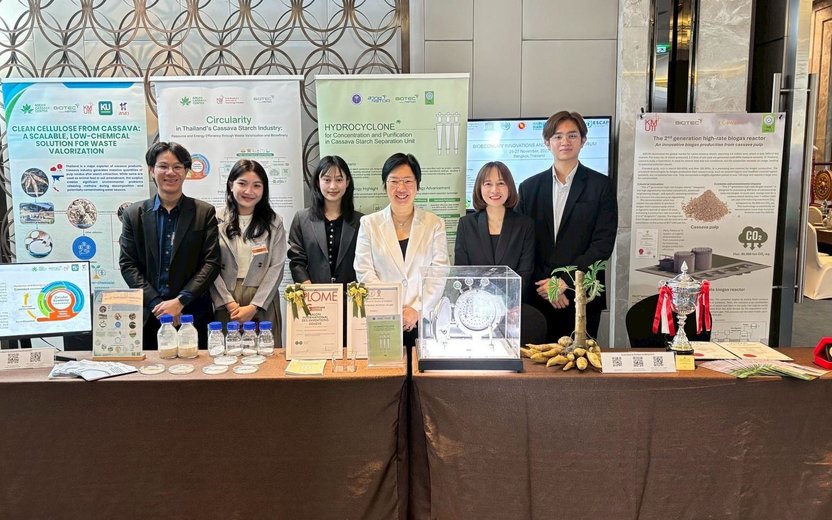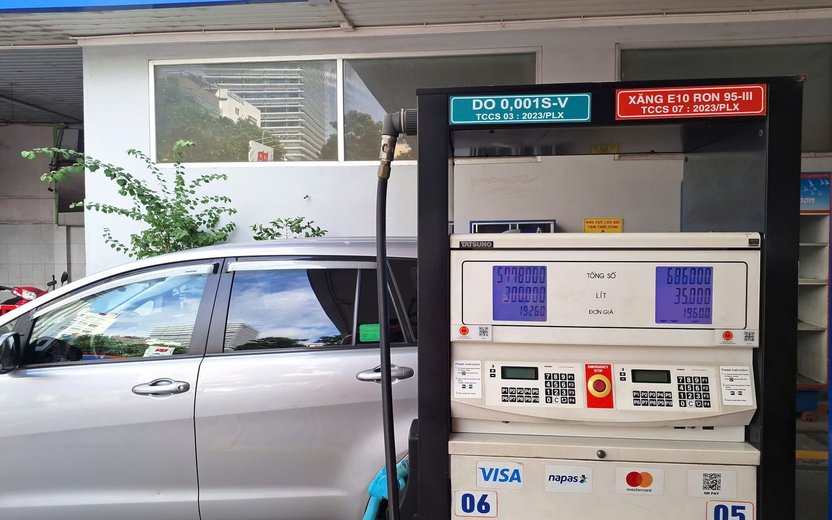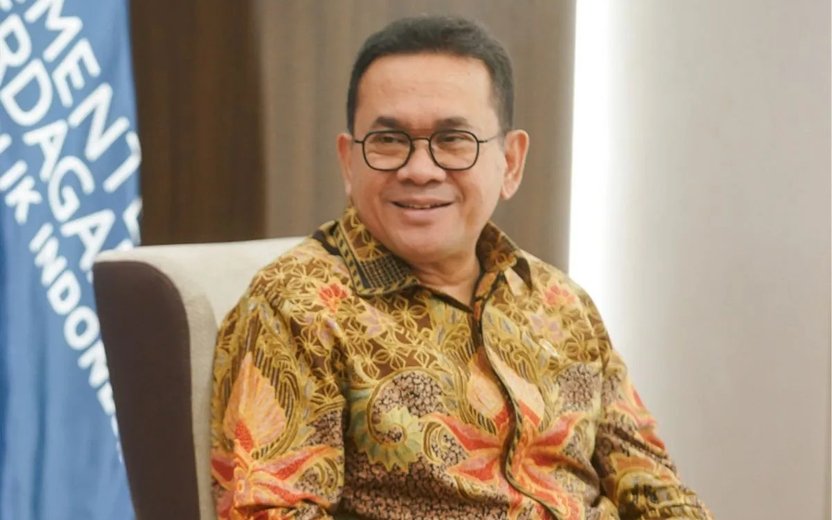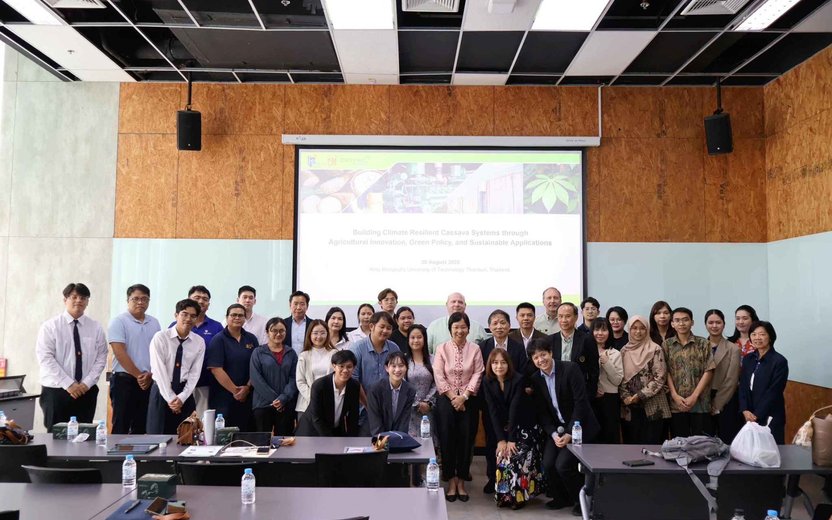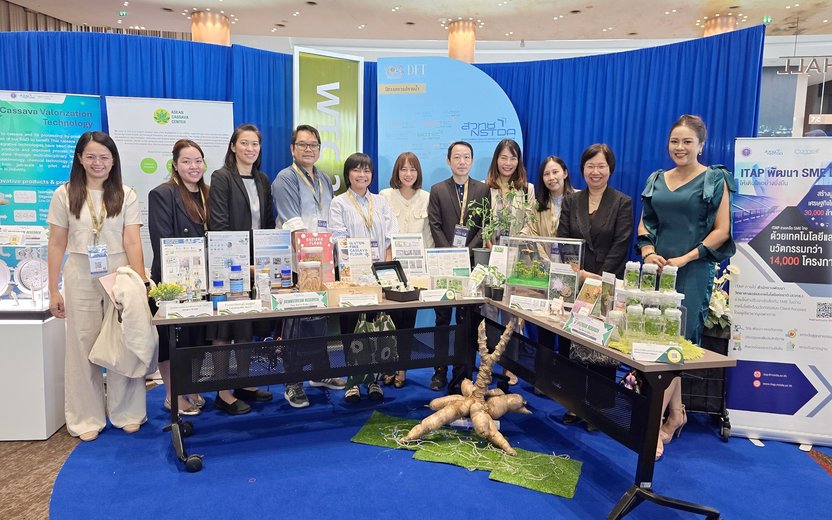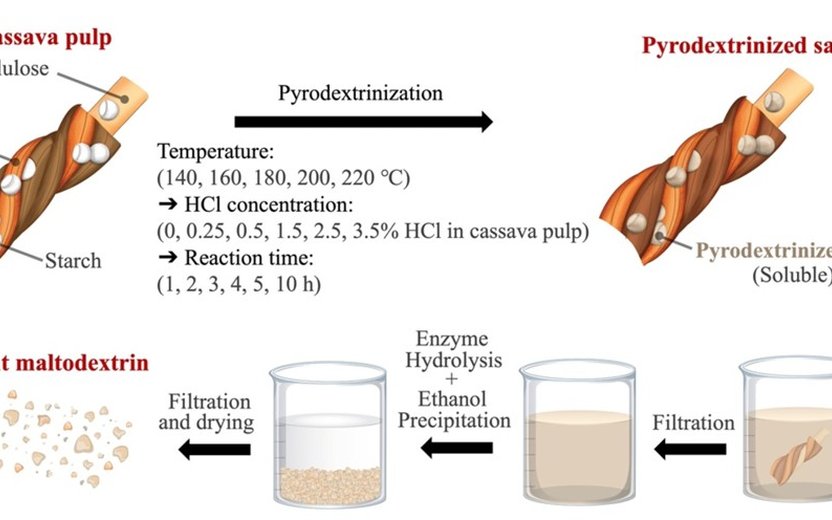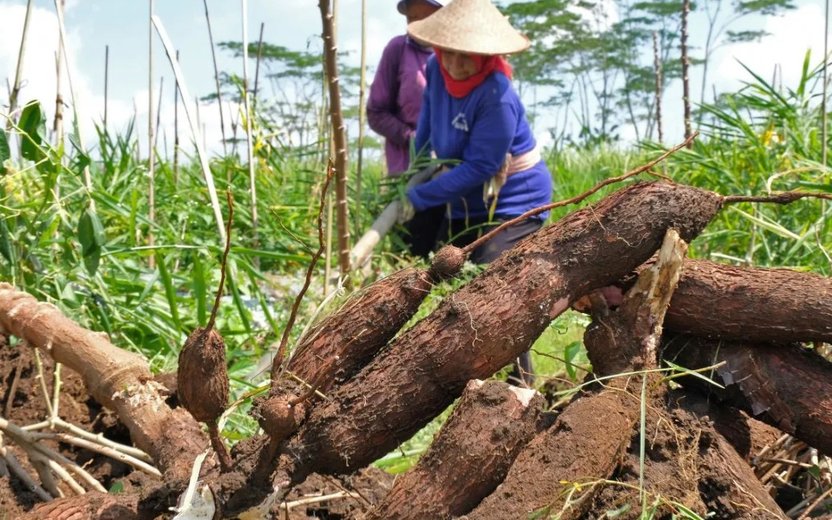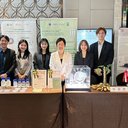Laos has expanded its cassava starch exports to China with a 1,000 tons shipment, highlighting the growing role of cassava-based products in ASEAN–China agricultural trade. The development reflects rising agro-processing capacity in Laos and is expected to support long-term export growth under the upgraded China–ASEAN Free Trade Area framework.
Read MoreFAO’s BIIF 2025 delegation visited BIOTEC, NSTDA to learn about Thailand’s bioeconomy advancements, including innovations in the sustainable cassava value chain and research on biodiversity and biocontrol technologies supporting circular and climate-resilient agrifood systems
Read MoreThe ASEAN Cassava Centre (BIOTEC–NSTDA and KMUTT) showcases three innovationsadvanced hydrocyclone starch purification, a 2nd-generation high-rate biogas reactor, and a low-chemical clean cellulose process—at BIIF 2025, organized by FAO as a regional platform accelerating circular and climate-resilient agrifood systems in Asia and the Pacific.
Read MoreVietnam will require all gasoline to be blended with 10% ethanol (E10) from 2026, rising to E15 by 2031. The move lowers fuel prices, reduces pollution, and creates a stable market for over 10 million tons of cassava produced annually, supporting farmers and promoting sustainable agriculture
Read MoreIndonesia has introduced new regulations tightening cassava and tapioca imports to protect local farmers and ensure a stable supply of raw materials for industry. Under Regulation No. 31/2025, only licensed producer importers are allowed to bring in cassava products, with stricter monitoring and inclusion of cassava in the national commodity balance system.
Read MoreThe International Seminar on Climate Resilient Cassava Systems, held on August 28, 2025 at the Knowledge Exchange Center (KX), Bangkok, was organized by KMUTT–BIOTEC–NSTDA under the Reinventing University Initiative. The seminar featured international experts from Germany, Laos, and Vietnam who shared perspectives on resilient root system engineering, climate-resilient development and carbon market access, and cassava’s potential for ethanol production, fostering regional cooperation toward sustainable and climate-smart cassava development.
Read MoreASEAN Cassava Centre and BIOTEC-NSTDA showcased sustainable cassava innovations at the World Tapioca Conference 2025, held at ICONSIAM, Bangkok. Under the theme “From Root to Riches,” the exhibition highlighted science-driven solutions across the cassava value chain—from clean planting material and disease diagnostics to biogas systems, functional sugars, and biofuel production—reinforcing regional collaboration for a sustainable bioeconomy.
Read MoreThailand is set to host the World Tapioca Conference 2025 (WTC 2025) in Bangkok on July 29–30, reinforcing its global leadership in tapioca exports. Led by the Department of Foreign Trade, the event will spotlight innovation, sustainability, and international collaboration to boost the industry’s competitiveness and value creation
Read MoreThis research developed resistant maltodextrin (RMD) from cassava pulp using pyrodextrinization and enzymatic hydrolysis, yielding 18.6% RMD under optimal conditions. The product exhibited high digestion resistance (91.7%) and promoted the growth of probiotics, highlighting its prebiotic potential.
Read MoreThe Indonesian government plans to restrict cassava and tapioca imports to support local farmers, stabilize agricultural product prices, and promote food self-sufficiency. The initiative is part of President Prabowo Subianto's policy to reduce reliance on imported goods by 2025.
Read More